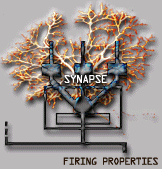 Definiciones de Enganche o Flow
Definiciones de Enganche o Flow
Referencia:
Definición Conceptual u Operacional:
Csikszentmihalyi (1977)
"the holistic sensation that people feel when they act with total
involvement" (p36)
when in the flow state "players shift into a common mode of
experience when they become absorbed in their activity. This mode is
characterized by a narrowing of the focus of awareness, so that
irrelevant perceptions and thoughts are filtered out; by loss of
self-consciousness; by a responsiveness to clear goals and
unambiguous feedback; and by a sense of control over the
environment...it is this common flow experience that people adduce as
the main reason for performing the activity" (p72)
Privette and Bundrick (1987)
"Flow..., defined as an intrinsically enjoyable experience, is similar to
both peak experience and peak performance, as it shares the
enjoyment of valuing of peak experience and the behavior of peak
performance. Flow per se does not imply optimal joy or performance
but may include either or both." [p316]
Csikszentmihalyi and
Csikszentmihalyi (1988)
"The flow experience begins only when challenges and skills are
above a certain level, and are in balance." [p260]
Mannell, Zuzanek, and Larson
(1988)
"Csikszentmihalyi (1975) describes the flow experience as 'one of
complete involvement of the actor with his activity' (p. 36), and he has
identified a number of elements that are indicators of its occurrence
and intensity. These indicators include: the perception that personal
skills and the challenges provided by an activity are imbalance,
centering of attention, loss of self-consciousness, unambiguous
feedback to a person's actions, feelings of control over actions and
environment, and momentary loss of anxiety and constraint, and
enjoyment or pleasure." [p291]
"Flow was operationalized by measuring the affect, potency,
concentration, and the perception of a skill/challenge balance ." [p292]¨
Massimini and Carli (1988)
congruent skills and challenges that are above each subject's average
weekly levels
LeFevre (1988)
"a balanced ratio of challenges to skills above average weekly levels"
(p307)
Csikszentmihalyi and LeFevre
(1989)
"When both challenges and skills are high, the person is not only
enjoying the moment, but is also stretching his or her capabilities with
the likelihood of learning new skills and increasing self-esteem and
personal complexity. This process of optimal experience has been
called flow."
Csikszentmihalyi (1990)
we feel "in control of our actions, masters of our own fate...we feel a
sense of exhilaration, a deep sense of enjoyment" (p3)
"the state in which people are so intensely involved in an activity that
nothing else seems to matter; the experience itself is so enjoyable that
people will do it even at great cost, for the sheer sake of doing it."
Ghani, Supnick and Rooney
(1991)
"two key characteristics of flow: the total concentration in an activity
and the enjoyment which one derives from an activity...the
precondition for flow is a balance between the challenges perceived in
a given situation and skills a person brings to it" (p230) "a related factor
is the sense of control over one's environment" (p231)
Trevino and Webster (1992)
"flow characterizes the perceived interaction with CMC technologies
as more or less playful and exploratory"..Flow theory suggests that
involvement in a playful, exploratory experience - the flow state - is
self-motivating because it is pleasurable and encourages repetition.
Flow is a continuous variable ranging from none to intense." [p540]
"Flow represents the extent to which (a) the user perceives a sense of
control over the computer interaction, (b) the user perceives that his or
her attention is focused on the interaction, (c) the user's curiosity is
aroused during the interaction, and (d) the user finds the interaction
intrinsically interesting.." [p542]
Webster, Trevino and Ryan
(1993)
"the flow state is characterized by four dimensions...(a) the user
perceives a sense of control over the computer interaction, (b) the user
perceives that his or her attention is focused on the interaction, (c) the
user's curiosity is aroused during the interaction, and (d) the user finds
the interaction intrinsically interesting. [p413]
Clarke and Haworth (1994)
"the subjective experience that accompanies performance in a situation
where the challenges are matched by the person's skills. Descriptions
of the feeling of 'flow' indicate an experience that is totally satisfying
beyond a sense of having fun." [p511]
Ellis, Voelkl and Morris (1994)
"..an optimal experience that stems from peoples' perceptions of
challenges and skills in given situations. Situations in which challenges
and skills are perceived to be equivalent are thought to facilitate the
emergence of such indicators of flow as positive affect and high levels
of arousal, intrinsic motivation, and perceived freedom" [p337]
Ghani and Deshpande (1994)
"The two key characteristics of flow are (a) total concentration in an
activity and (b) the enjoyment which one derives from an
activity...There is an optimum level of challenge relative to a certain
skill level. ...A second factor affecting the experience of flow is a
sense of control over one's environment." [p383]
Lutz and Guiry (1994)
"Psychologists use the term 'flow' to describe a state of mind
sometimes experienced by people who are deeply involved in some
event, object or activity...they are completely and totally immersed in
it...Indeed, time may seem to stand still and nothing else seems to
matter while engaged in the consumption event."
[from respondent instructions]
Hoffman and Novak (1996)
"the state occurring during network navigation which is 1)
characterized by a seamless sequence of responses facilitated by
machine interactivity, 2) intrinsically enjoyable, 3) accompanied by a
loss of self-consciousness, and 4) self-reinforcing... [and] extends a
sense of playfulness. ... Consumers must focus their attention on the
interaction...and they must perceive a balance between their skills and
challenges....two additional antecedents - interactivity and
teleprescence - enhance flow"
29.mar.2000
Pulsar tecla de vuelta
Glosario de Bioingeniería del Conocimiento - Carlos von der Becke.